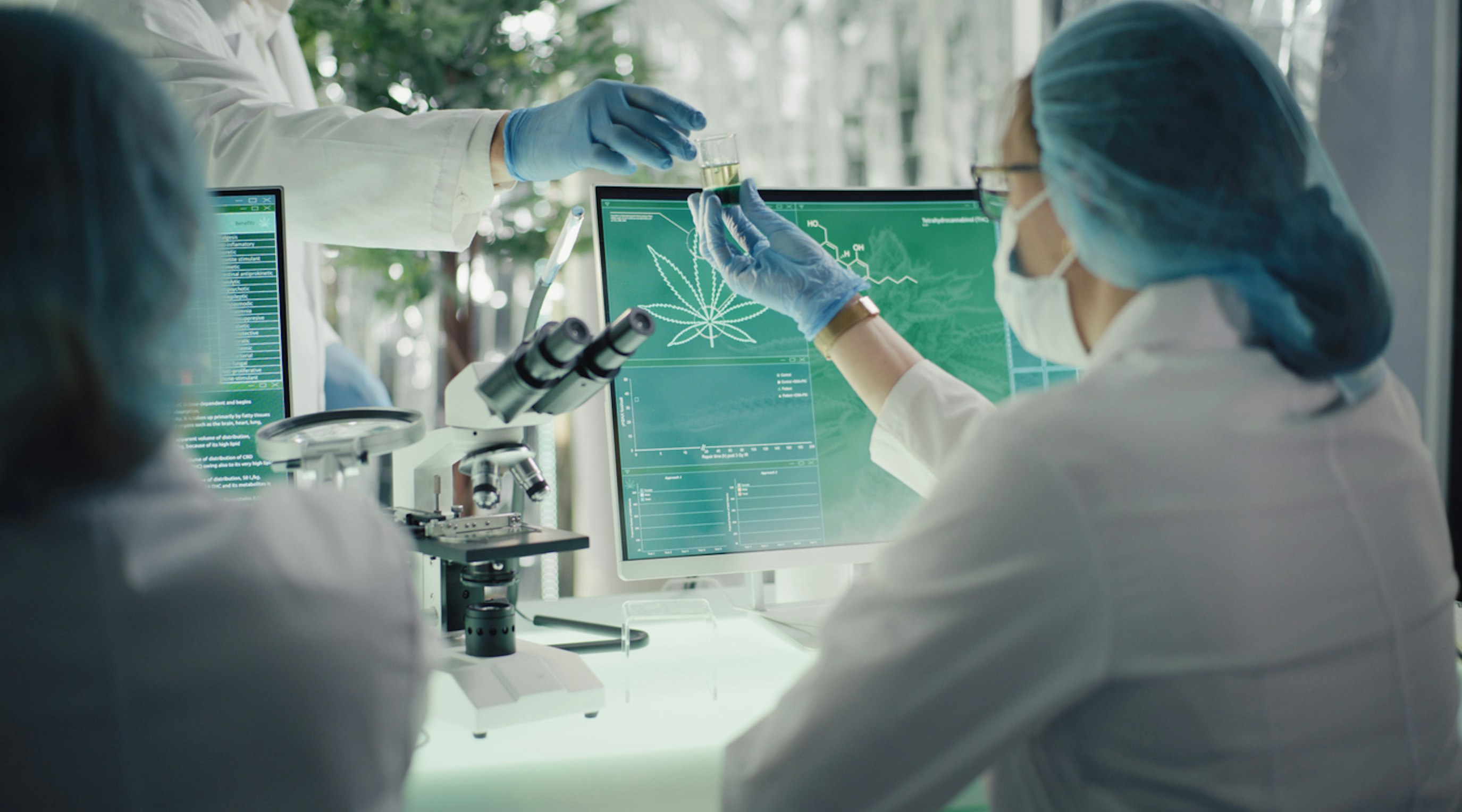CBD, THC-Free and prescribed cannabis products: Clearing the confusion
6 min read
Emily Ledger
Growing awareness and acceptance of cannabis-based products has been on the rise in recent years. In addition to a flourishing CBD consumer market, medical cannabis has become increasingly accessible to patients with a variety of health concerns. Yet, there remains some confusion regarding the important differences between many of these products. We’re taking the time to clear the confusion between CBD, THC-free, and prescribed cannabis products.
Contents
Is medical cannabis legal in the UK?
On the 1st of November, 2018, the UK government officially approved the use of cannabis-based medicines for the treatment of a wide range of conditions. Only specialist doctors can prescribe these medications, and they may only be considered when at least two conventional therapies have been deemed unsuccessful. To date, tens of thousands of patients have been prescribed cannabis-based medicines through private medical cannabis clinics like Releaf.
Despite growing accessibility and public awareness, many people remain uncertain of the difference between over-the-counter CBD products, prescribed cannabis-based medicines, and illicit cannabis products sourced from the black market. So, let’s examine the important distinctions between these products.
What is medical cannabis?
Cannabis is a versatile plant that has been used industrially, spiritually, and medicinally for thousands of years. It features in a number of ancient medical texts, implicating the plant as a treatment for a wide variety of ailments throughout history, including epilepsy, menstrual pain, glaucoma, and much more. However, tighter restrictions on cannabis introduced in the mid-20th century meant that medical use of the plant was largely prohibited around the world - until recently.
Today, specialist doctors can prescribe a wide range of medical cannabis products, including medical cannabis flower and medical cannabis oils. These medicines may also be called cannabis-based products for medicinal use products (CBPMs). CBPMs can contain many cannabis-derived compounds, including CBD, THC and other cannabinoids, as well as terpenes. However, not all products that contain these compounds can be classified as medicines.
Regulating medical cannabis in the UK
CBPMs can fall into two categories: licensed and unlicensed medications. The only CBPMs that have been licensed in the UK are Epidyolex, Sativex, and Nabilone. The majority of CBPMs prescribed in the UK are unlicensed - also known as “specials”. This means that they have not yet received market authorisation from the Medicines and Healthcare products Authority Agency (MHRA).
However, unlicensed CBPMs must still meet strict regulations. For example, cultivation facilities that produce cannabis-based products must adhere to Good Manufacturing Practices (GMP) guidelines for the manufacturing of medicinal products. Medical cannabis oil and flower products prescribed in the UK must all meet these standards. Over-the-counter CBD products are not subject to these standards.
THC-free and CBD products
Cannabidiol (CBD) products such as CBD drops, CBD skincare, and even CBD foods and beverages have been widely available in the UK for years. They can now be bought online and over the counter in brick-and-mortar retailers such as pharmacists, supermarkets, and health shops. Many of these products are completely free from THC - the primary psychoactive compound found in cannabis; however, some products contain trace amounts of the cannabinoid.
Regulating over-the-counter CBD
CBD products, such as CBD oil drops, do not undergo the same rigorous standard of testing as CBMPs; however, they are subject to some regulatory requirements. Current rules stipulate that CBD products can be exempt from the UK Misuse of Drugs Act when “no one component part of the product or preparation contains more than one milligram of the controlled drug…” in this case, THC or THC-A. Products exceeding this amount are therefore considered illegal.
In 2021, further regulations were introduced to ensure the safety and quality of CBD products, after investigations found many products were incorrectly labelled, with some exceeding legal THC limits. Novel Foods regulations now require all CBD products to be authorised before they are put on the market.
Illegal and unregulated cannabis products
As you might have guessed, cannabis products sold on the black market are not regulated. As such, there is no way of knowing for sure what you are getting; for example, cannabinoid levels can vary significantly and there is a real risk of contamination with other substances, some of which may pose a risk to your health. These products are widely used for recreational purposes and contain high levels of THC; however, not all illicit cannabis products are known for their high-inducing qualities.
What is CBD tea and CBD flower?
Hemp has been used in the manufacture of health and wellness products for millennia. Hemp skincare and food products are widely available; however, not all hemp-derived products are legal in the UK. For example, is CBD flower legal in the UK?
While farmers can cultivate hemp for industrial purposes (with an industrial hemp license from the Home Office), current guidance states that they are not permitted to harvest or process the cannabinoid-rich leaves or flowers of the plant. This suggests that CBD flower, which is often sold online and in shops, including as CBD tea or hemp tea, is technically illegal in the UK.
Yet, the case isn’t as black and white as it would appear. In a recent court case, the Crown Prosecution Service attempted to prosecute a CBD company for the importation of CBD flower. However, the Crown Court ruled that hemp flower with a THC content below 0.2% did not fit the criteria of a narcotic drug. The government has since admitted that more clarity is needed on the subject.
Nonetheless, it is important not to confuse commercially available CBD flower with prescribed medical cannabis flower. Unlike CBD flower, medical cannabis flower is subject to the same safety and quality standards as other cannabis-based medicines.
Final thoughts
Cannabis is an extremely versatile plant. It has been used in health, wellness, and recreation for thousands of years. However, it is important to be aware of the current laws and regulations around different cannabis products. Recreational cannabis products are, by nature, unregulated and potentially unsafe. Thankfully, patients now have the opportunity to access high-quality cannabis-based medicines prescribed by experienced healthcare professionals.
Share article
Did you like this article?
It is important to seek medical advice before starting any new treatments. The patient advisors at Releaf are available to provide expert advice and support. Alternatively, click here to book a consultation with one of our specialist doctors.
Elevate your wellness with medical cannabis
Get comprehensive care, convenience, and confidence with an all-in-one treatment plan.
Am I eligible?Authors
Emily, an accomplished content writer with a specialisation in cannabis and alternative health, leverages her five years in the sector to enhance education and diminish stigma around medicinal cannabis use.
Editorial Policy
All of our articles are written by medical cannabis experts, guided by strict sourcing guidelines, and reference peer-reviewed studies and credible academic research. Our expert clinical team and compliance specialists provide valuable insights to ensure accuracy when required. Learn more in our editorial policy.
Need more help?










